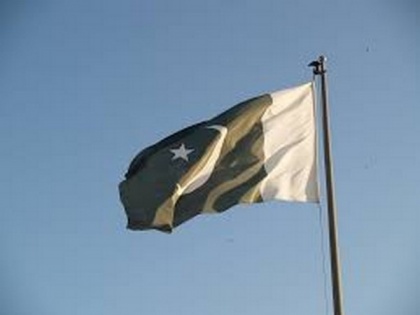European Parliament to withdraw Pakistan's GSP+ status over abuse of blasphemy laws
By ANI | Published: July 26, 2021 10:13 PM2021-07-26T22:13:05+5:302021-07-26T22:25:07+5:30
Amid abuse of the blasphemy laws and cases widely reported across Pakistan, the European Parliament has moved to withdraw Islamabad's GSP+ status.

European Parliament to withdraw Pakistan's GSP+ status over abuse of blasphemy laws
Amid abuse of the blasphemy laws and cases widely reported across Pakistan, the European Parliament has moved to withdraw Islamabad's GSP+ status.
Philippe Jeune, writing in EU Political Report said that the European Parliament has criticised Pakistan's controversial blasphemy laws and called for a review of the status quo.
Pakistan is a major beneficiary of the trading opportunities offered by the EU Generalised Scheme of Preferences (GSP).
From January 1, 2014, Pakistan has benefited from generous tariff preferences (mostly zero duties on two-thirds of all product categories) under the so-called GSP+ arrangement aiming to support sustainable development and good governance.
In order to maintain GSP+ status, Pakistan is obliged to ratify and effectively implement 27 core international conventions on human and labour rights, environmental protection and good governance.
On April 24th of this year, in a Joint Motion for a Resolution, supported by all major political groups, MEPs called for an immediate review of Pakistan's eligibility for GSP+ status, and considered appropriate, the withdrawal of that status, said EU Political Report.
Such a move, which apparently enjoys the support of the majority of the house, would be highly damaging for Pakistan's economy: from 2010 to 2020, EU27 imports from Pakistan have almost doubled, with much of the growth coming in the aftermath of the award of GSP+ in 2014, wrote Jeune.
According to figures released by the European Commission, the EU is now Pakistan's second most important trading partner, accounting for 14.3 per cent of Pakistan's total trade in 2020 and absorbing 28 per cent of Pakistan's total exports.
Parliamentarians alleged that the blasphemy laws are used to "incite harassment, violence and murder against those being accused, causing people who are accused of blasphemy have to fear for their lives regardless of the outcome of judicial procedures."
They further stated that "it is widely known that Pakistan's blasphemy laws are often abused by making false accusations that serve the personal interests of the accuser," the report added.
Moreover, EU Today reported that as per a US news agency investigation, sexual harassment, rape and physical abuse by Islamic clerics teaching in madrassas or religious schools throughout the country is a common phenomenon.
It is in these schools - known as Madaris-e-Deeniya in Urdu - that many of the country's poorest, and most vulnerable study.
Whilst the government has promised to modernise the curriculum and make the madrassas more accountable, police say the problem of sexual abuse of children by clerics is pervasive and the scores of reports they have received, none of which have resulted in the conviction of a cleric, are just the tip of the iceberg, reported EU Today.
Religious clerics are a powerful group in Pakistan and are united. Whenever any allegations of abuse are brought against them they join hands to defend each other.
They have often been able to hide the widespread abuse by accusing victims of blasphemy, defamation of Islam, or defamation of the prophet, which carries a mandatory death sentence, reported EU Today.
In such a scenario, the family of any young girl - or boy - alleging sexual abuse by a cleric, faces two options.
To report the offence, knowing that no action will be taken against the cleric, who will invoke Pakistan's draconian and internationally condemned blasphemy laws, and stigmatising the victim for life, or worse: those accused of blasphemy often face the wrath of the mob or they can say and do nothing.
On April 28th, 2021, the European Parliament adopted a joint motion, supported by all major political groups, for a resolution on the blasphemy laws in Pakistan, calling for more comprehensive approaches to address such abuses of the laws as described above in Pakistan, reported EU Today.
The United States Commission on International Religious Freedom has previously called for the elimination of blasphemy laws throughout the world - globally, 84 countries have such laws, although few if any are as far-reaching, draconian, or as open to abuse as those of Pakistan.
Pakistan has the highest rate of enforcement of blasphemy laws, with Iran the second highest. They impose the death penalty for defaming the Prophet Mohammed.
( With inputs from ANI )
Disclaimer: This post has been auto-published from an agency feed without any modifications to the text and has not been reviewed by an editor
Open in app